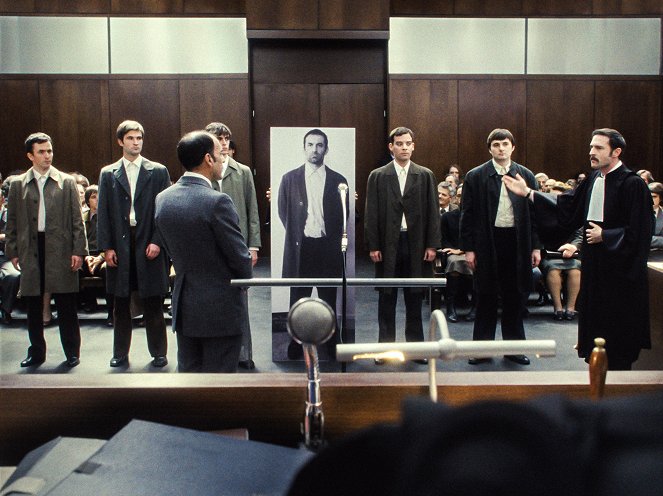Regie:
Cédric KahnCamera:
Patrick GhiringhelliActeurs:
Arieh Worthalter, Jeremy Lewin, Arthur Harari, Christian Mazzuchini, Stéphan Guérin-Tillié, Nicolas Briançon, Jerzy Radziwilowicz, Didier Borga (meer)Samenvattingen(1)
Een van de geruchtmakendste rechtszaken uit de recente Franse geschiedenis vond plaats in 1976. In de beklaagdenbank stond dertiger Pierre Goldman (Arieh Worthalter), zoon van Joodse verzetsstrijders, revolutionair en crimineel. Na een jaar te hebben meegevochten met Venezolaanse rebellen, keerde Goldman platzak terug in Parijs, waar hij met roofovervallen het hoofd boven water probeerde te houden. Hij werd opgepakt, verdween voor meerdere jaren achter de tralies, maar gaat in beroep tegen de verdenking van een tweevoudige moord. Goldman, inmiddels de lieveling van links Frankrijk - filosoof Régis Debray en actrice Simone Signoret steunden hem openlijk - ontkende hardnekkig schuld. Rond deze zaak trekt regisseur Cédric Kahn een intense, rumoerige rechtbankfilm op, waarbij de schuldvraag al snel wordt overschaduwd door complexere thematiek als Joodse identiteit en racisme. (Cinéart Nederland)
(meer)Video's (3)
Recensie (1)
The Goldman Case is a masterclass in how to grippingly direct (and edit!) a courtroom drama that takes place almost entirely in a single room without needless embellishments (and, furthermore, is shot in the television format that corresponds to the time when the trial was held). In terms of acting and the screenplay, The Goldman Case is equal to Anatomy of a Fall, at whose centre stands a similarly complicated character and which raises similar questions (Doesn’t the one who can tell the more convincing story and give a better performance win in court? Do words have more weight than actions in the end?). And though it involves a case from the 1970s (a left-wing Jewish activist denies murder charges), in the second plane the film delivers an almost sociological overview of French society at the time, the clash between the right and the left that plays out in the courtroom, the inability to see a person outside of the box in which we have placed them based on their political orientation or background, and the unwillingness to see that some facts can be black and white at the same time, all of which is in some ways reminiscent of today’s culture wars. 85%
()


